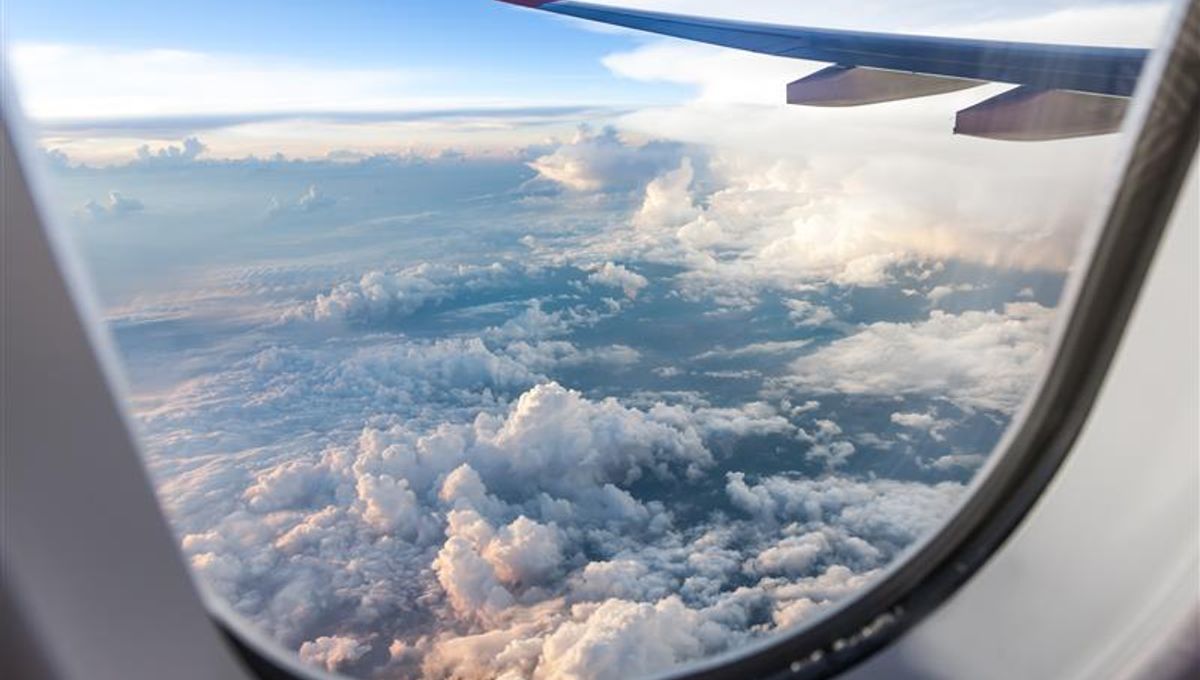
Have you ever wondered what would happen if you were on a commercial flight flying far above the ground when a massive earthquake struck? Surely you would be too high to experience anything, right? Well, it depends on a few things.
Earthquakes and the air
It might seem unlikely, but depending on the situation, there may be a few outcomes from an earthquake that cause issues for a flight. But before launching into that, it is worth exploring the relationship between the atmosphere and the earth.
“When the ground shakes, it causes tiny atmospheric waves that can propagate right up to the ionosphere,” said Attila Komjathy, a scientist at NASA’s Jet Propulsion Laboratory (JPL) of the California Institute of Technology, on NASA’s website. This is a region that can extend up to 1,000 kilometers (600 miles) above the surface of our planet.
As such, an earthquake can cause some atmospheric disturbances, but would this be enough to interfere with a plane? The short answer is no, but the long answer, which is also no, is more interesting.
When earthquakes occur, they release seismic waves that come in the form of pressure waves (P waves) and shear waves (S waves). While S waves can only travel through solid media (the ground), P waves can transfer into other media, such as liquids or gases. As such, they can move into the atmosphere. When they do so, they become soundwaves that typically register below 20 hertz, which is the lower threshold for human hearing, so they usually can’t be heard (sound that falls in this range is referred to as infrasound).
However, the further these waves move through the air, the weaker they become. This is a process called attenuation and is basically the same process that makes things sound quieter the further away you are from them. It is also the process that weakens sunlight as it travels through layers of atmosphere or other media, such as the ocean.
This is why a plane flying over an earthquake, even a severe one, would not feel the influence of the vibrations below. By the time the P waves have traveled through the rock and then the air, they would have been diminished to such an extent that they would be overpowered by the plane’s own noise and motion.
However, that still doesn’t mean planes are free from risks when an earthquake occurs. The issues here are just of a different type and relate to navigation and safety.
In 2018, a user claiming to be a United States Air Force pilot and aero engineer called Ron Wagner wrote a response to a question posted on Quora that asked, “Do earthquakes affect an aircraft flying above?”. Wagner’s response was so interesting that it was subsequently reposted by Forbes.
According to Wagner’s account, he had flown a plane during an earthquake which interfered with air traffic control. In this instance, the earthquake caused a power outage at the base on the ground which led to issues with the plane’s navigation instruments as well as its ability to communicate. The power outage also meant air traffic control lost radar signal, so it could no longer locate Wagner’s flight. However, all these issues were short-lived, and the problem was solved as the ground base’s emergency power kicked into life.
So despite this sounding like a scary event, it is an example of what can happen. In most cases, air traffic control stations have sufficient emergency backup generators for situations like this. They also have thoroughly prepared control plans for system-wide events that, where relevant, consider what to do in the case of a volcanic eruption, nuclear fallout, floods, acts of terrorism, and, of course, earthquakes.
So you have very little to worry about if you find yourself flying while an earthquake occurs below you. In most cases, you won’t even know it happened until you land.
All “explainer” articles are confirmed by fact checkers to be correct at time of publishing. Text, images, and links may be edited, removed, or added to at a later date to keep information current.
Source Link: What Happens If You Fly Over An Earthquake?